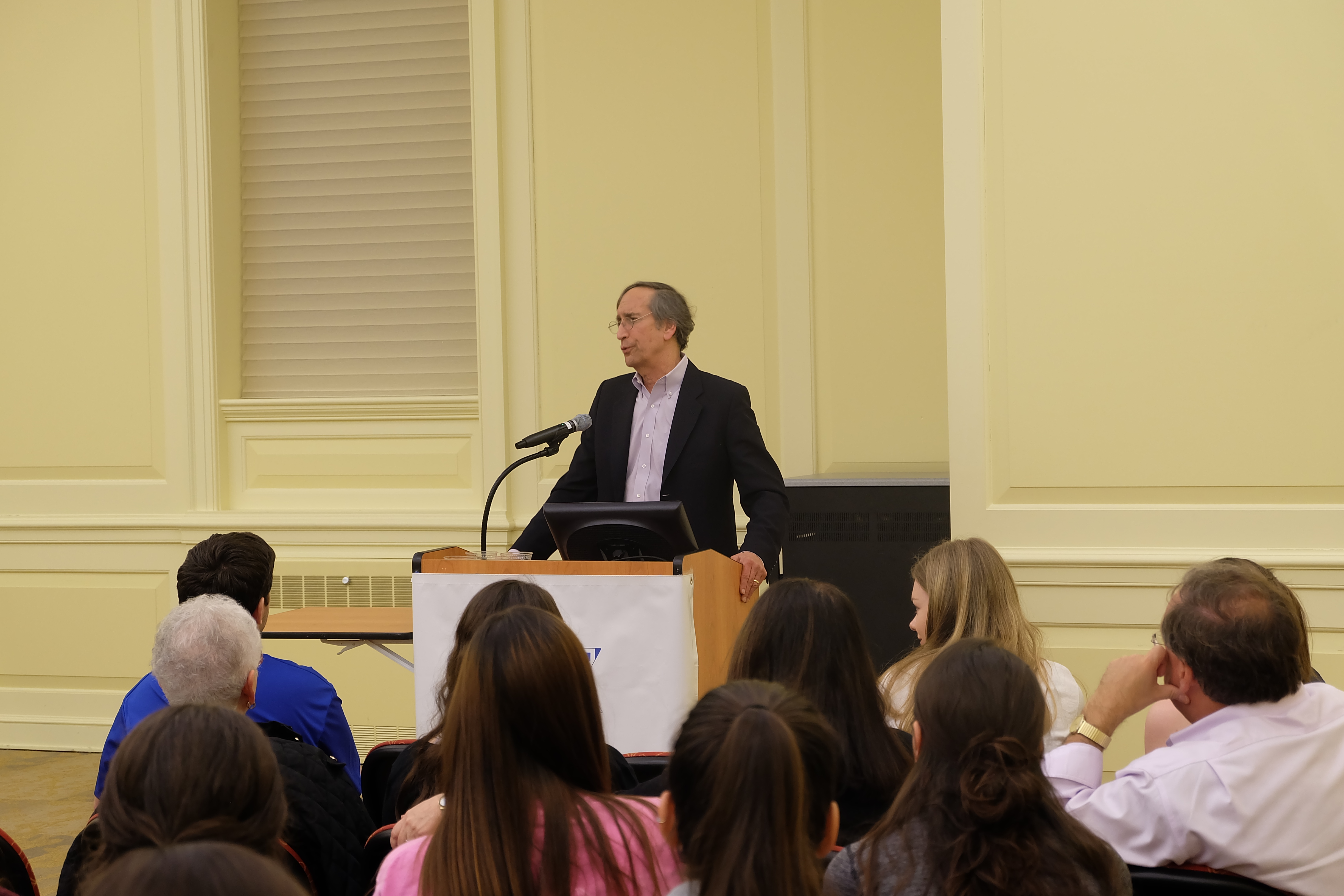By Evan Silvera
For The Diamondback
A week after President Trump met with Israeli Prime Minister Benjamin Netanyahu in Washington, a group of University of Maryland students discussed how the two countries may work together under new leadership.
About 100 students gathered in McKeldin Library’s special events room Thursday night for former State Department Adviser Aaron David Miller’s lecture on the state of the U.S.-Israel relationship in the Trump administration.
Miller, a distinguished scholar at the Woodrow Wilson International Center for Scholars, urged the audience not to worry about the U.S.-Israel relationship, but rather Israel’s role in the region it’s in.
“This region is more broken, angry and dysfunctional than any other area in the world today,” Miller said, “and we [the U.S.] are stuck in the middle of it.”
Terps for Israel organized the event, which was cosponsored by UMD College Republicans, UMD College Democrats, J Street UMD and the Student Entertainment Events’ funding board.
“We know that with the new administration, there will be a change in how our country looks at the U.S.-Israel relationship,” said Terps for Israel president Jonathan Allen.
Miller said the United States is faced with a key challenge — one that he believes might not have a resolution.
“We are stuck in a region we cannot transform or leave,” he said. “This is our conundrum.”
According to Miller, the proposed two-state solution to the Israeli-Palestinian conflict is the “least worst option.” He said it is the only one that “would lead to disentangling the driving dynamic that exists between Israelis and Palestinians.”
At a Feb. 15 press conference, Trump said he is open to both a one-state or two-state solution.
Miller said an effective American mediation would be one key to implementing a two-state solution.
Under Trump’s leadership, Miller said it’s hard to know the hard and fast policy toward the world or the Middle East.
“Mr. Trump has proclivities driven in large part by his persona and personality,” Miller said.
Junior economics major Joseph Chuzhin said he enjoyed Miller’s commentary on the role the United States plays in the conflict.
“My biggest takeaway from the presentation is a stronger understanding of the U.S. perspective on Israel and Middle East policy,” Chuzhin said.
Miller ended his presentation by urging the students not to “give up on the prospects of the world.”
“Look at the world the way it is so that you have a chance of actually trying to change it,” he said, “and a realistic chance of doing so.”



